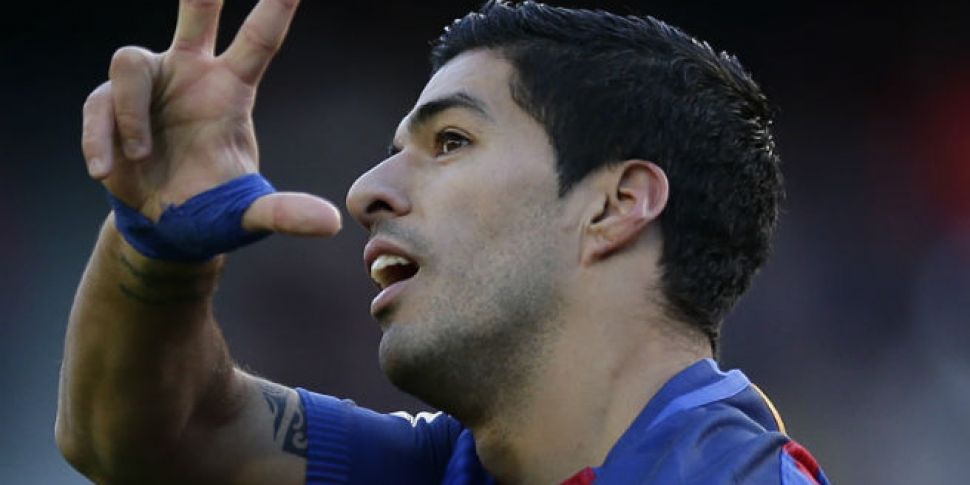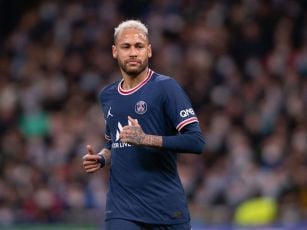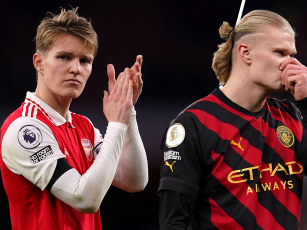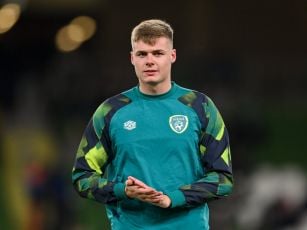This year for the first time since 2009, a player other than Lionel Messi or Cristiano Ronaldo picked up the Pichichi Trophy.
The award, named after the Athletic Bilbao striker Rafael "Pichichi" Moreno, celebrates the league's top scorer.
Luis Suarez, as part of the fearsome MSN attacking trident which features Messi and fellow South American Neymar, ended the domination of two of the players who are widely regarded as the two best in the world.
The Uruguay international helped Barcelona to complete a treble of the Champions League, Copa del Rey and La Liga during his inaugural season in Spain. The Catalan giants conquered all that was put before them, sweet for a player who had suffered such intense disappointment the season previous.
Suarez starred as Liverpool narrowly missed out on winning the Premier League title, only to come undone down the final stretch. The 29-year-old attempted to almost single-handedly win the league for the Reds and return them to the pinnacle of English football for the first time since 1990.
Over the past four years Luis Suarez has become one of the most potent attackers in Europe, but like many of those who scale the heights of the global game, his footballing education truly started in the Netherlands.
After a year with the Nacional senior team in his home country, Suarez joined Dutch side FC Groningen. The club have been quietly churning out some of the best talent in Europe.
Players the calibre of Arjen Robben, Daley Blind and the blossoming Virgil Van Dijk have all had some form of formal training with the club. If you go slightly further back, Ronald Koeman began his career with the team during the 1980s.
Of those players, both Blind and Suarez continued to ply their trade in the Eredivise with Ajax, while Robben opted to go to PSV before moving onto Chelsea, Real Madrid and Bayern Munich.
So why have Dutch academies been able to consistently produce some of the best players in Europe?
"There’s always been a lot of youth academies in the Netherlands, so it’s become part of Dutch football culture or in the case of Ajax, it’s almost been a philosophy that has been developed over the years," explains Dutch football journalist Elko Born.
"We see that youth coaches have been with club for years and years and will have seen them develop programmes. Some encourage children to play different sports apart from football from a very young age. Some will play tennis or rugby as well. Historically, the education of young players has been very important in the Netherlands."
Ajax are considered to have one of the most famous academies in Europe, but even in recent years AZ Alkmaar - Dundalk's opponents in the Europa League group stage - won the Rinus Michels award for the best academy in Dutch football.

FC Barcelona's Luis Suarez holds the Golden Boot at the Camp Nou last October. (AP Photo/Manu Fernandez)
The culture is there, but the focus has increased in recent years as we see players leaving the Netherlands younger and younger. So why the focus on developing youth?
"In recent years, it’s been a question of money. Clubs like Feyenoord, Ajax as well as PSV and AZ Alkmaar. It’s difficult for them to compete with the bigger leagues financially, so they feel it necessary to focus more on youth.
"In the case of Feyenoord and Ajax, these are explicit mission statements of the club to admit to fans 'look, we’re not going to focus on big money transfers, but instead we’re going to make investments in our youth academy’. They want to make this their unique selling point and where the club has a lot to gain. It’s been proven in the past so this is what we’re going to try and do."
With this in mind, it's strange to see that in recent years the Netherlands have struggled at senior level on the international stage. Guus Hiddink's side failed to qualify for the European Championships in France last summer and their World Cup qualifying campaign has gotten off to a slow start.
"When we look at the last very successful generation for the Dutch national team - the 2014 World Cup - that was thanks in large part to Arjen Robben’s fantastic performances, Robin van Persie as well.
"You look at their generation, they were quite successful when they reached the final of the World Cup in 2010. This was van Persie’s generation, Robben and Wesley Sneijder.
"You could say that 2010 was the highest point of their career. After that, they became a little bit older. There wasn’t really a next generation to take their place. Is there a new Wesley Sneijder right now? I would say no. Is there a new Robin van Persie, probably not. There’s definitely not a new Arjen Robben and we see that in the Dutch national team. They’re still quite reliant on Robben, even now.
"So for one reason or another, there seems to be a drought when it comes to major football talent in the Netherlands and this is quite perplexing."

Barcelona coach Rinus Michels (left) has a word with captain Johan Cruyff. The pair were instrumental in developing the concept of Total Football. Image: Peter Robinson EMPICS Sport
Their struggles on the international stage are in stark contrast to the teams who have come before them, most notably in the 1960s and 1970s when the concept of "Total Football" was first being developed. While some of the principles have remained in the Netherlands, there has been some tweaks into how football is taught to younger players.
"People don’t even use the term Total Football very often in the Netherlands, so it’s not like people go around and saying ‘we’re going to play Total Football’ and ‘we’re suppose to be playing Total Football’.
"What you do see is that many remnants of the Total Football is still very relevant today. In the Netherlands, the focus is on the 4-3-3 formation. I would say that every single youth team plays in this formation. This is seen as the most important aspect of how football is supposed to be played, as well as the Total Football philosophy.
"The way that this 4-3-3 formation is implemented will differ, but from a very young age players are drilled to playing that formation. All the positions they are taught is relevant to 4-3-3. We see in the Dutch national team as well that there is a constant demand from the fans and the press in the Netherlands to play 4-3-3. It’s something people really focus on."
With their formal training continuing away from the Netherlands, players leaving to go to Europe's more lucrative leagues has become an increasing worry for the Dutch football officials.
"As we see now, players are leaving the Dutch league younger and younger. Sometimes for a lot of money. Quite recently, we saw that this was the case with Memphis Depay who was still quite young when he left PSV for United. They really only got to enjoy his services for a really short period of time.
"The better these young players get when they are in the Netherlands, the sooner big clubs will want to buy them. Big clubs know that Dutch clubs have excellent players in their academy and they’ll try to pick it out. We saw that in recent years with players like Patrick van Aanholt, Nathan Ake or quite recently Timothy Fosu-Mensah who would have joined Manchester United’s youth academy from Ajax.
"We see that clubs like Manchester United and Chelsea as well as Italian clubs who are buying up youth players from academies like Ajax and Feyenoord. If you can’t keep youth players and they head for bigger leagues, you’ve got a problem on your hands."
But with the exodus in search of top flight football in England, Germany, Italy and Spain, there remains hope for the coming generations.
"There is some exciting talents in the Eredivisie right now but as we see at clubs like Feyenoord and Ajax the talent that is coming through is very, very young.
"Players are leaving at a younger age, so the talent breaking through to the first team becomes younger again. Justin Kluivert, Patrick Kluivert’s son, made his debut for Ajax over the weekend. This is a 17-year-old kid.
"They come through so young that maybe it’s difficult for them to make a mark in the Dutch national team… Right now the generation breaking through to the Eredivisie are very, very young and that although there are some exciting talents, it could take years for them to develop into proper players.
"It will take some time for the national team to reach the same heights that they’ve hit in the past."
Download the brand new OffTheBall App in the Play Store & App Store right now! We've got you covered!
Subscribe to OffTheBall's YouTube channel for more videos, like us on Facebook or follow us on Twitter for the latest sporting news and content.








